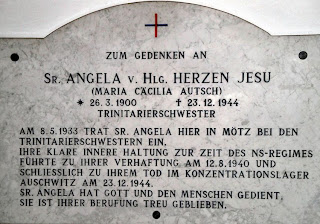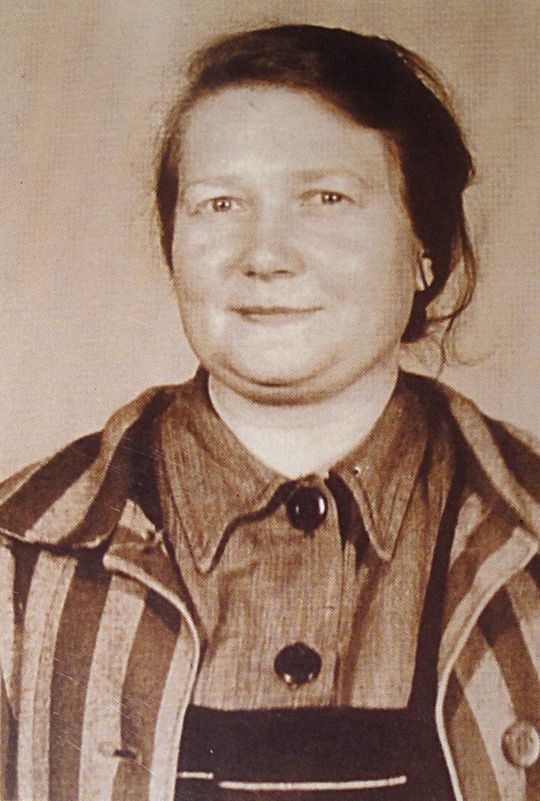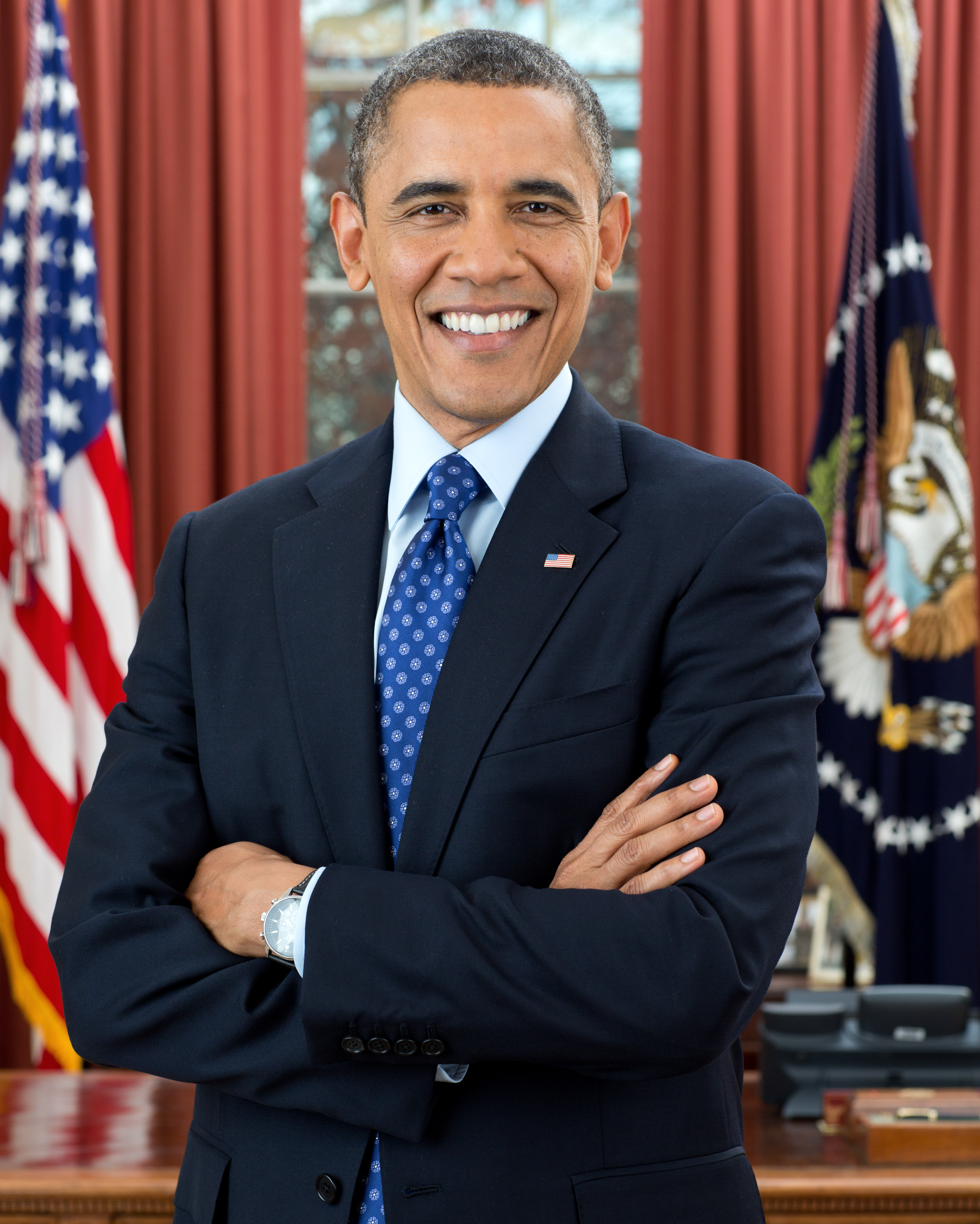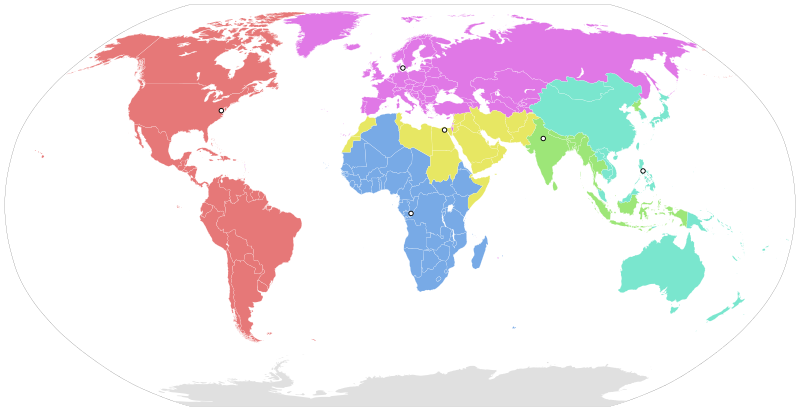M: Hi Angela, could I and Ylva ask you some questions?
A: Sure, ask anything!
Y: What's your entire name?
A: Maria Cäcilia Autsch
Y: And when and where were you born?
A: Well, I was born in 1900 in Westfalen, Germany. I was the 5th child in the family.
M: What did you work with?
A: Actually as an adult I became a nun before World war II, but as a teenager I worked as a nanny and later as a worker in a clothe store.
Y: What made you decide to become a nun?
A: Ouh, well it was.. actually I decided it because of my husband.
Y: What happened?
A: He hung himself.
M: Horrible! Could you tell us about the world war II instead?
A: Why not... During the World war II when I were visiting a local streetmarket I mentioned to one of my friend that a German ship had been reduced. At the same time I revalved that I had listened to the forbidden foreign radio.
Y: What happened then?
 A: I got caught!
A: I got caught!M: Where did they took you?
A: To Ravensbrück, and two years later to Auschwitz of corse.
Y: Did you get a job there?
A: Not actually. But I were asked to start working as a nazi nurse, but to beacome that I should have had to broke my nun promise, so I said no!
M: What happened then?
A: I started to take care of other convicts in Auschwitz who were ill, lets take for a example that I lied to get extra food.
Y: Why did you die?
A: A year after that I arrived to Auschwitz the building got bombed and I got hurted. Later I died because of my damages.
M: A few more questions:
M: If you would still be alive, what would you influence on one of the big problems today?
 A: I probably should be a member in tha Red Cross organization and be working on the field as a nurce. If I wouldn't be a part of the Red Cross I probably would be a member of Amnesty International.
A: I probably should be a member in tha Red Cross organization and be working on the field as a nurce. If I wouldn't be a part of the Red Cross I probably would be a member of Amnesty International.Y: Is there anything that you could teach us or our coming generations what would it be?
A: I could teach you about how hard it was to survive during World War II in the concentration camps and about the World War II of course!
Källor:
http://translate.google.fi/#sv/en/
Dessutom:
En special bok ( 101 Historiska hjältar, Ola Larso och Brian Palmer)





